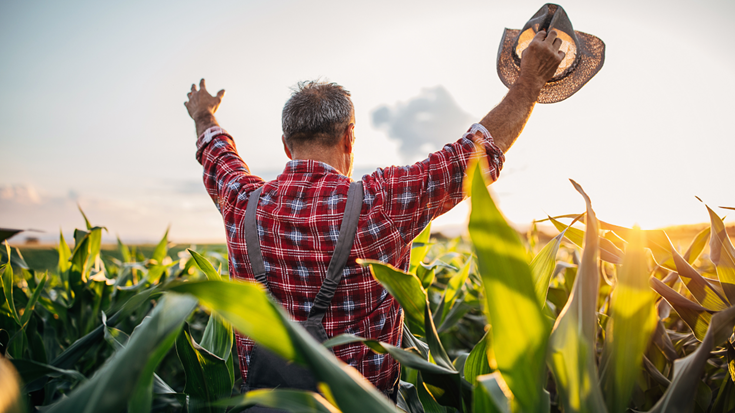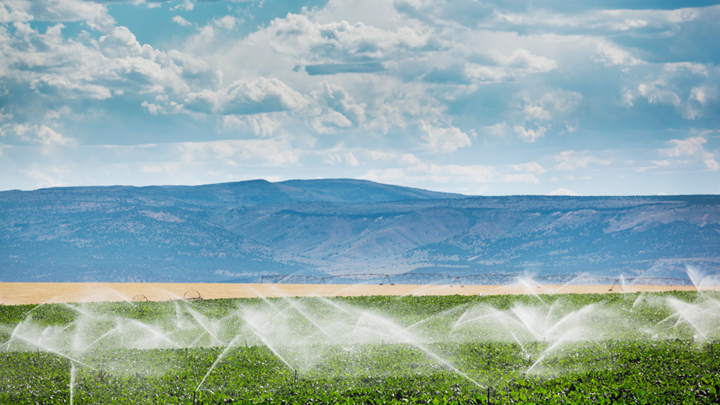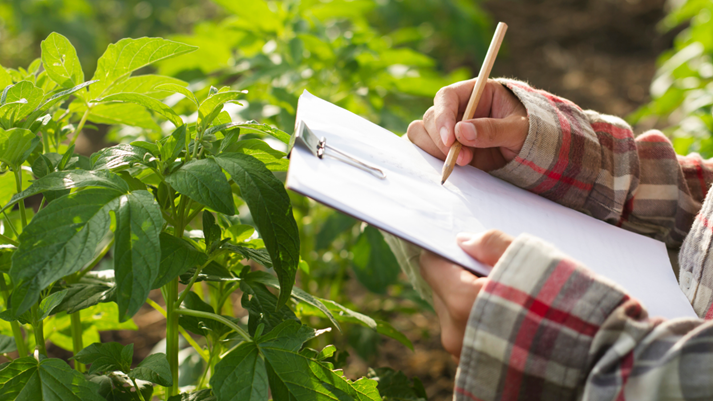Building a Resilient Future for Farms in a Changing Climate

The Midwest’s fertile soil and predictable planting season have long been a cornerstone of our agricultural success. Farmers knew that when spring arrived, it was time to get their seeds in the ground. However, with climate change creating unpredictable weather patterns, our farmers face unprecedented challenges to get their crops in the ground.
The solution? Building a resilient agribusiness. But before we dive into that, let’s discuss how climate change affects Midwest farming.
The Impacts of Climate Change on Agriculture
One of the biggest challenges is the increasing variability of rainfall. Some years, the Midwest is experiencing torrential downpours and flooding, while others bring prolonged dry spells and drought. Both scenarios prove to be bad news for our farmers.
Over the past three decades, the Midwest has experienced an increase in rainfall during the spring season. This change in weather patterns has affected the timing and process of planting corn and soybeans – its main commodity crops – as well as other crops such as wheat, oats, apples, grapes, and cherries. By 2050, these anticipated longer and warmer seasons are expected to have an overall negative impact on crop yields.
When the rain comes pouring down during the planting season, it can transform fields into unforgiving mud pits. The soil becomes too wet and saturated, making driving machinery onto the fields impossible. Have you ever tried plowing through a field that’s basically a skating rink? It’s not pretty. Even worse, eroded soils provide a favorable environment for pests and pathogens to thrive and multiply.

And when drought strikes, it’s an entirely different story. Seeds need water to germinate and grow, but they’re left high and dry without enough rainfall. Imagine planting your seeds with high hopes, only to see them struggle to sprout and wither away.
The good news is farmers are resilient, and they’re not just sitting around idly. They’re finding innovative ways to adapt to this changing reality.
Resilient Farming Practices
1. Diversification of Crops and Livestock
2. Implementing Water Management Strategies
Water is a critical resource for agriculture, and efficient water management is crucial for resilience in changing precipitation patterns. Farmers can implement various water management strategies, such as improved irrigation techniques and rainwater harvesting, to optimize water use and reduce reliance on erratic rainfall.
Some farmers have taken advantage of resources like the Conservation Innovation Grant offered by the USDA’s Natural Resources Conservation Service. They partnered with other groups to promote the development of technology that will aid in water conservation. With the grant fund’s help, they have upgraded a pre-existing irrigation scheduling tool to include features such as a smartphone application and a web-based platform. These features have made the system even more accessible to farmers, allowing them to access it from any location and at any time.

3. Enhancing Soil Health and Nutrient Management
4. Utilizing Technology for Precision Farming and Monitoring
Advancements in technology offer valuable tools for farmers to enhance their resilience. Precision agriculture technologies, like drones and sensors, can provide real-time data on soil moisture, crop health, and weather conditions. Remote sensing applications can also help farmers monitor their farms and make informed decisions for resource management.
Exploring Pro-Environmental Financing
Key Takeaway: A Collective Effort for a Resilient Agribusiness

Our agriculture systems can be better prepared to withstand and recover from climate-related shocks by incorporating resilient farming practices, such as crop diversification, water management, soil health, and technology. But change can’t happen in a vacuum. We must rely on more than just our farmers to tackle this issue. Policies and support systems must be in place to encourage and facilitate the adoption of these practices. Building a resilient agribusiness isn’t just about improving yields and profits. It’s about ensuring a sustainable and secure food future for our communities and planet.
At MBE CPAs, we’re committed to supporting farmers and agribusiness owners in their quest for resilience and sustainability. We understand the agricultural industry’s challenges, from climate change to economic uncertainty. Contact us today to see how we can assist you in building a resilient future for your farm!
This article was written by our marketing affiliate and contributor, Brand House Marketing. Reach out to them for creative and custom-tailored marketing solutions for your company.

1 thought on “Building a Resilient Future for Farms in a Changing Climate”